
Labor Rights and Human Rights
Human rights management
CTCI's Human Rights Policy (http://www.ctci.com/www/ctci2016/csr/upload/page/PG1065-F0.pdf) follows the UN Global Compact, the Universal Declaration of Human Rights, the UN Framework and Guiding Principles on Business and Human Rights, and the Ruggie Framework. Primary human rights issues concerned with CTCI cover the operation process (employees and contractors) and the procurement stage (suppliers). We evaluate human rights issues and stakeholders that pose as risks every year through management processes such as human rights issue identification, affected stakeholders, due diligence and complaint channels, and then formulate risk mitigation measures and compensation systems. In 2020, human rights issues with potential risks are working hours, safety, and health. Compared with 2018, the risk value increased from 38.52% to 46.30%, mainly due to the impact of overtime and health check tracking issues. For human rights management of suppliers and contractors, we will continue to strengthen the promotion and education for CTCI's partners, and impose relevant penalties if needed. CTCI Human Rights Policy HR Impact Management Framework
▼ CTCI Human Rights Due Diligence
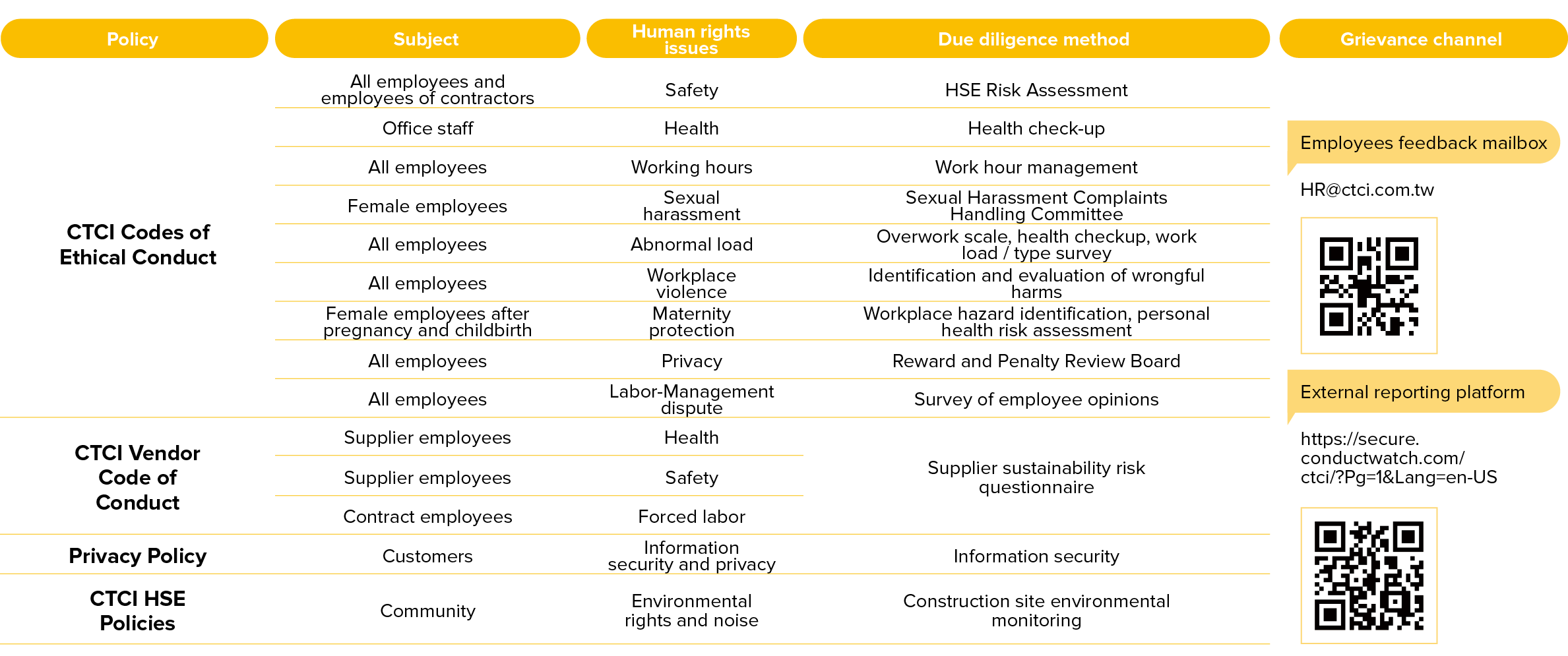
▼ CTCI Human Resource Management Risk Matrix
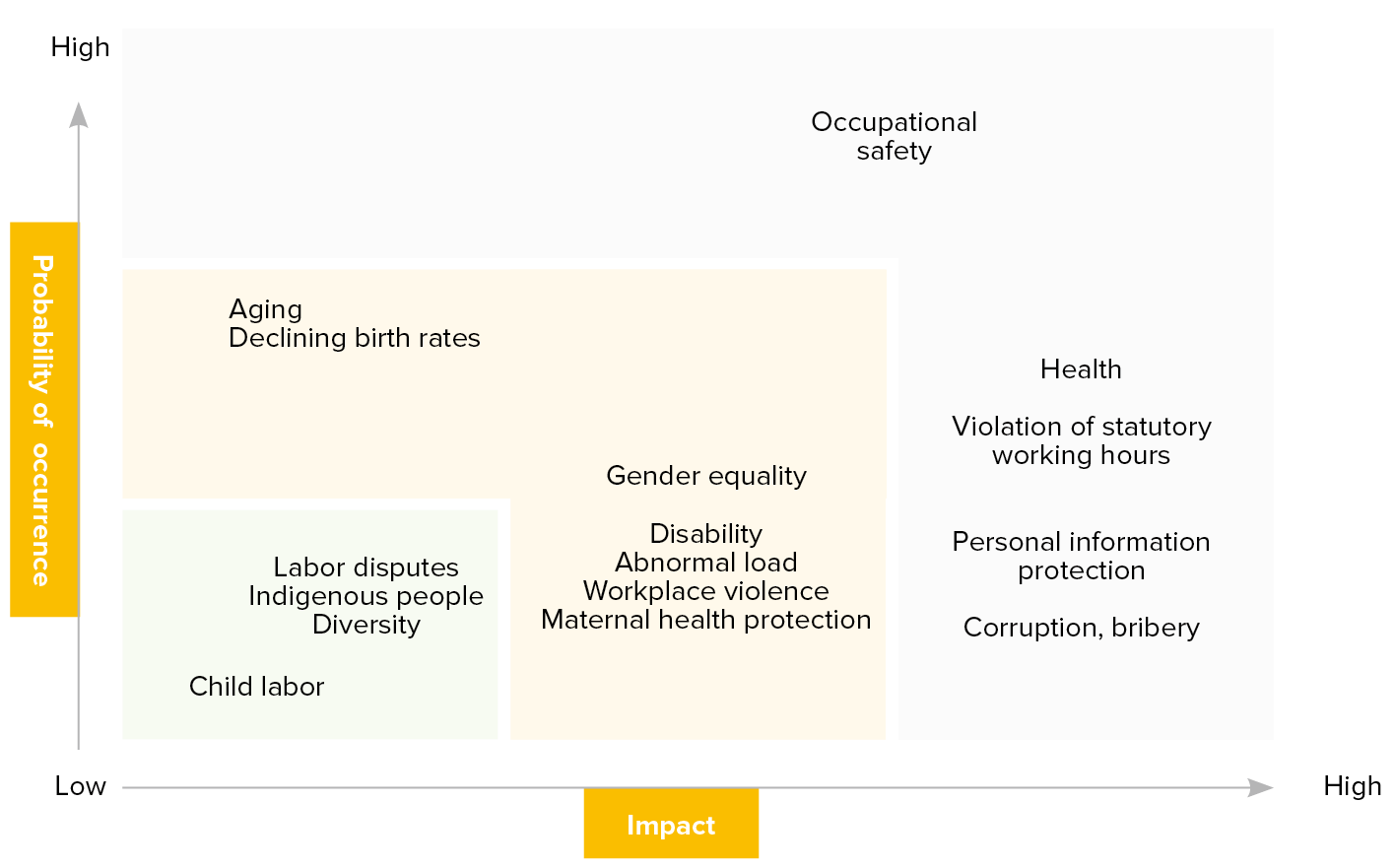
▼ Human rights mitigation and remediation measures
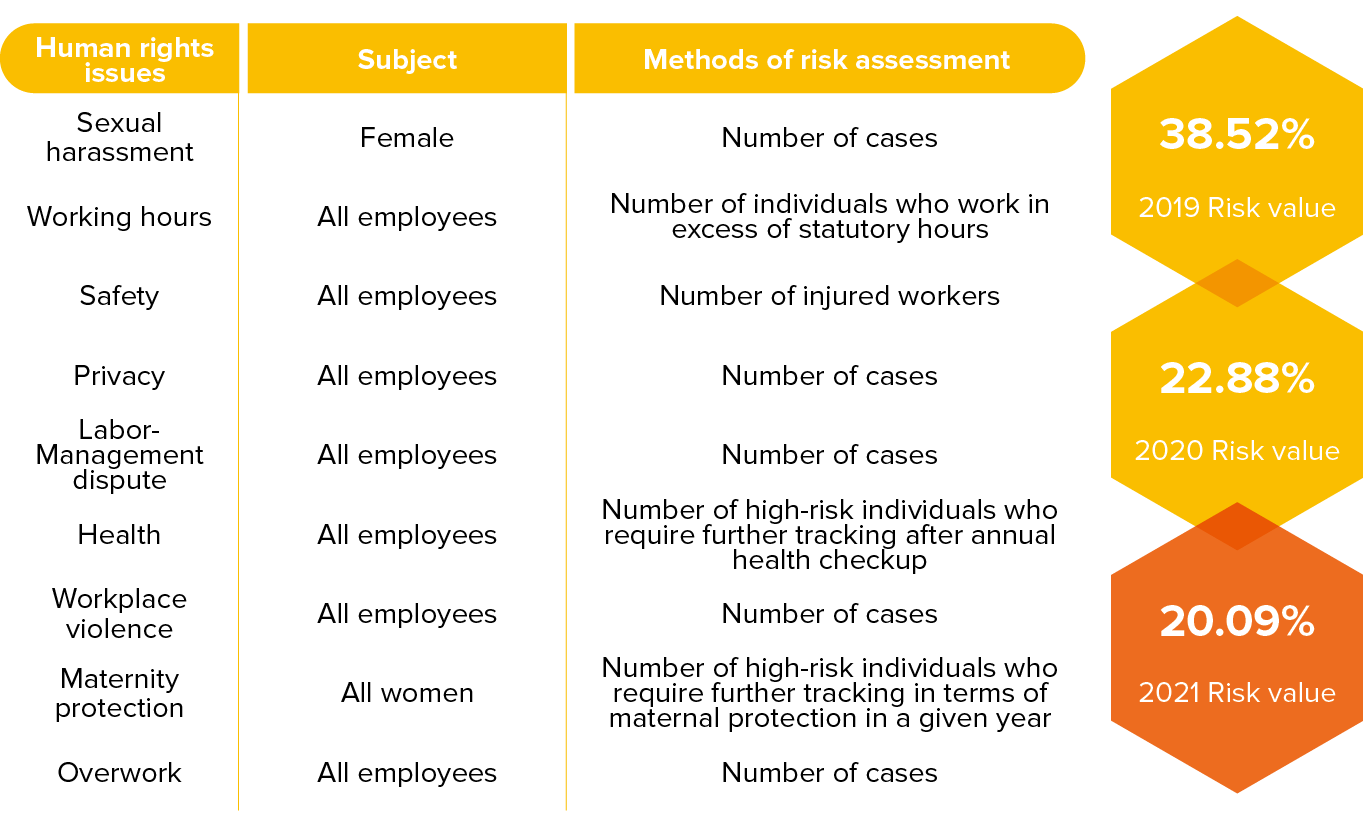
▼ CTCI Human Rights Assessment
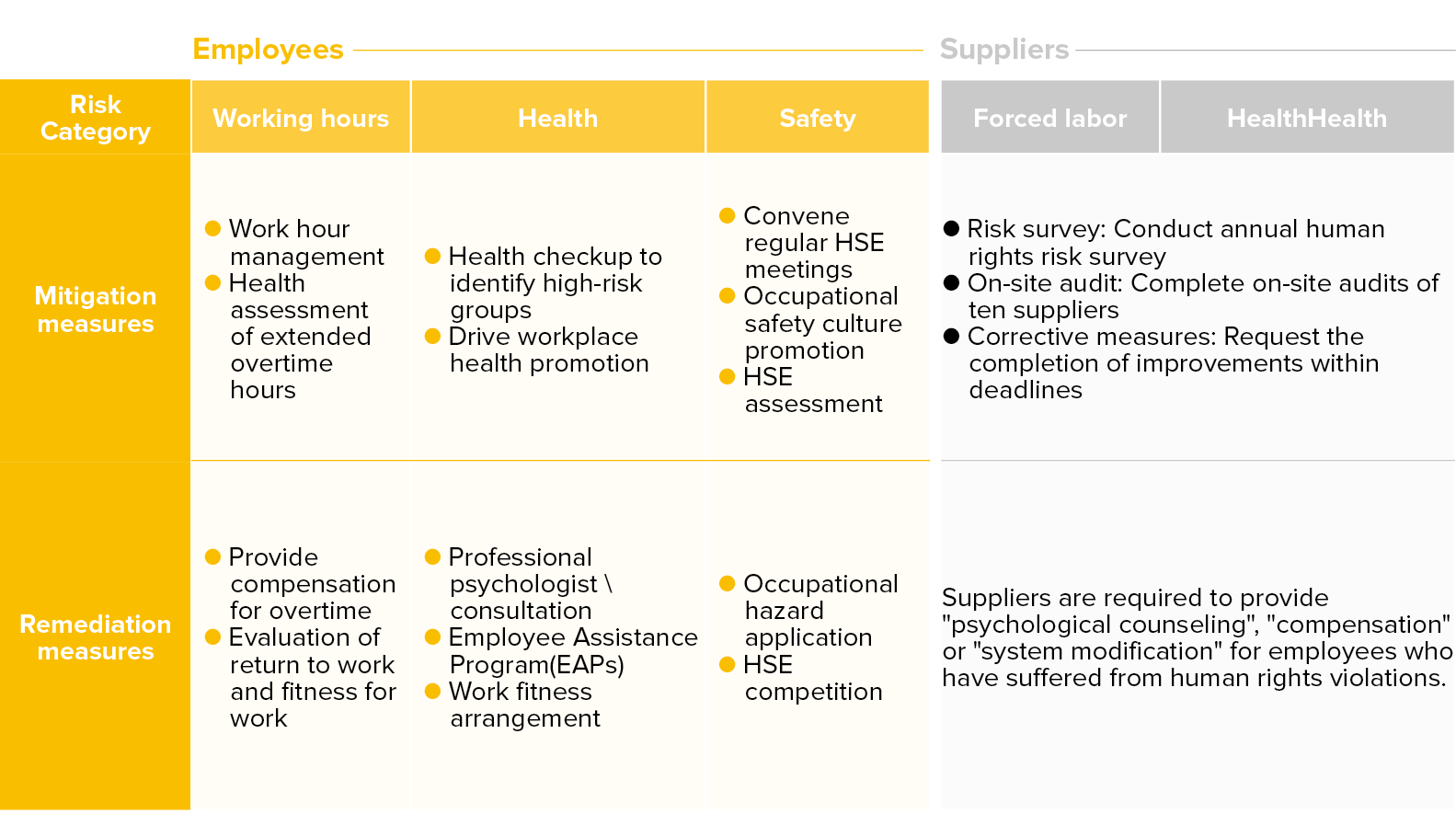
▼ Human rights training
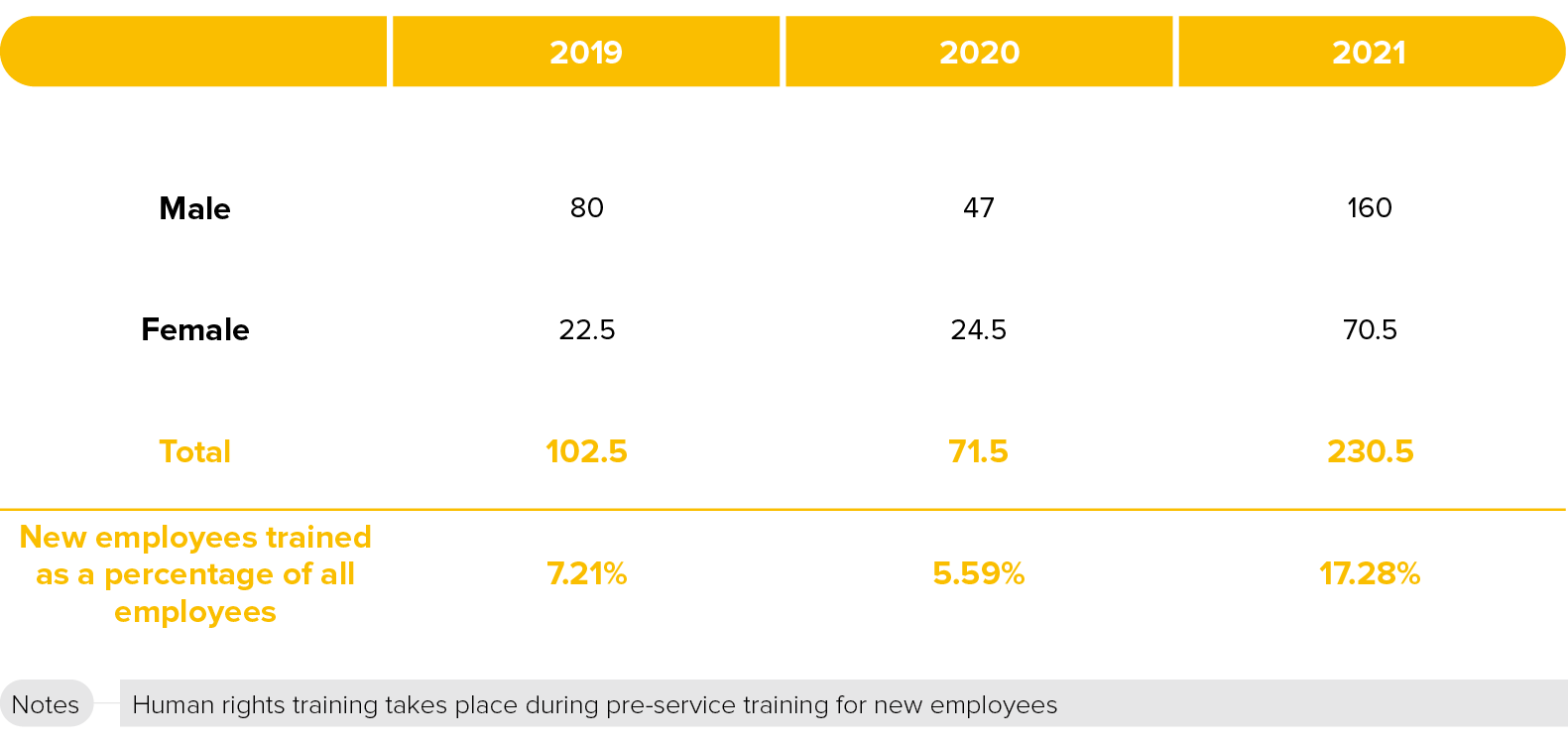
Sexual harassment
For sexual harassment case reporting, the Human Resources Deptartment has set up a hotline and a designated e-mailbox to handle sexual harassment complaints. A "Sexual Harassment Complaints Handling Committee" was organized to handle sexual harassment incidents or suspected cases. Once a complaint is received, the committee would initiate the investigation procedure and carry out necessary activities in a confidential and discreet manner. Within 3 months after a complaint is received, if substantiated, an investigation report with recommendations for punishment is submitted to the Chairman. There were no cases of sexual harassment in 2021.
▼ Sexual Harassment Complaint Flowchart
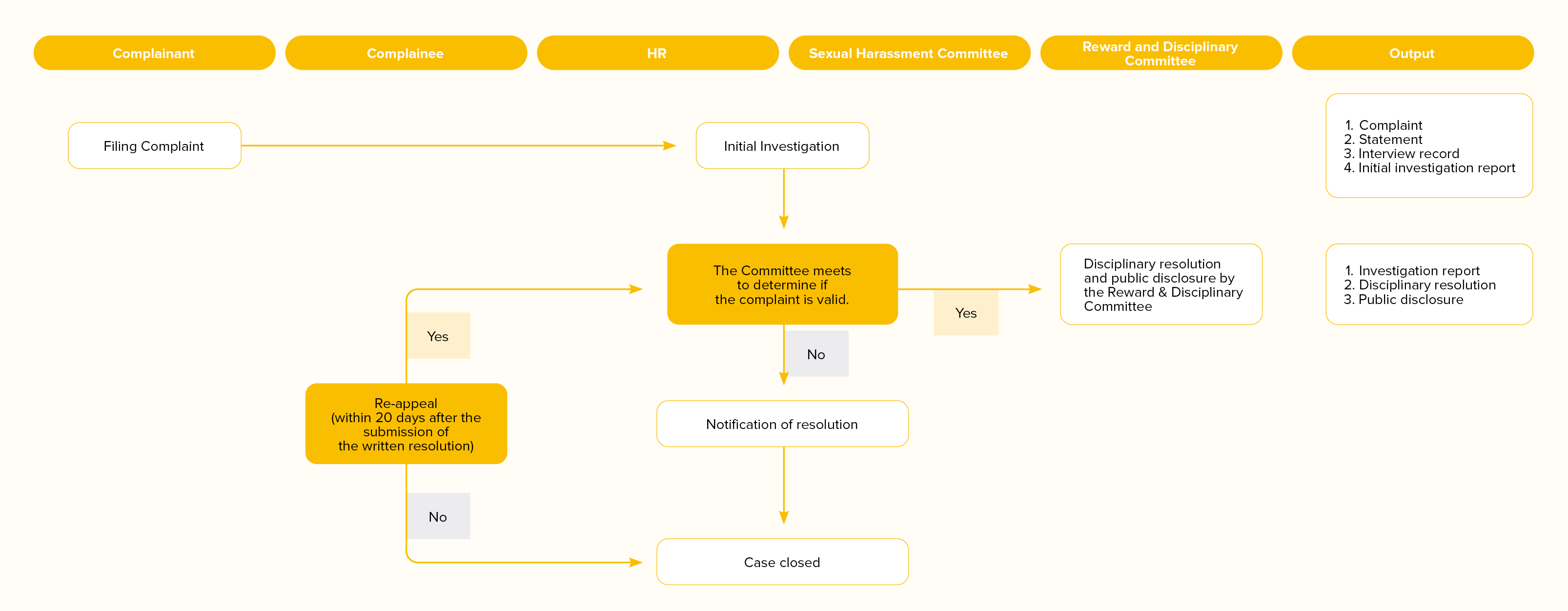
Employee communication
CTCI values the opportunities to carry out bilateral communication with our employees, and provides open and transparent channels for communication because only unimpeded communication between employees and the company will create a workplace that encourages active employee participation.
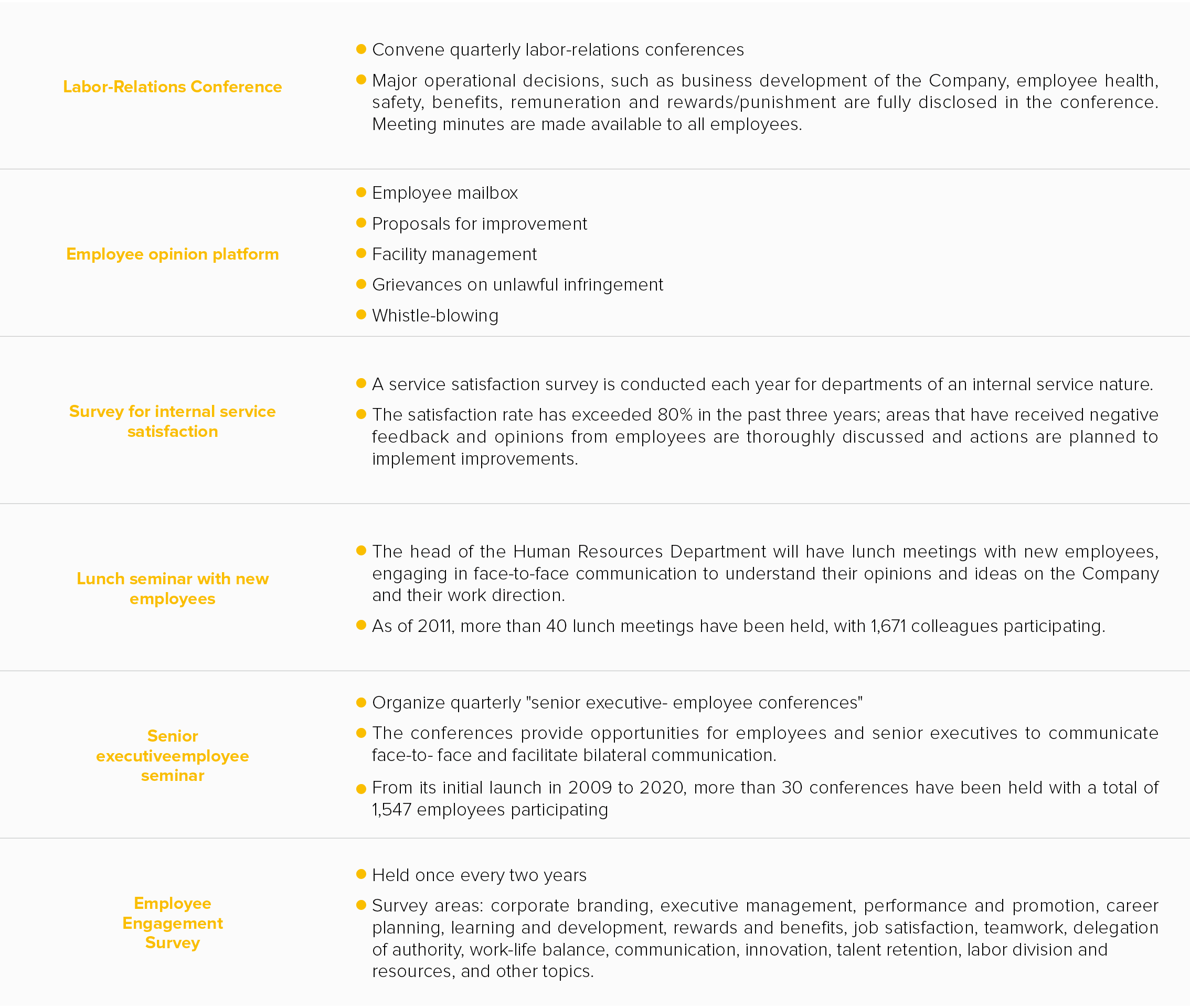
Employee Engagement Survey
In order to enhance employee engagement and improve the workplace atmosphere, CTCI conducts a Group global engagement survey every two years. The survey includes topics such as executive management, performance and promotion, career planning, learning and development, rewards and benefits, job satisfaction, teamwork, communication, talent retention, division of labor and resources, among others. According to the survey results, the proportion of employees who show ""high recognition"" has increased significantly from 48% in 2016 to 72% in 2019 and slightly to 73% in 2021, indicating that more CTCI colleagues are willing to make positive publicity for CTCI, which means that more than 70% of them are proud to be part of CTCI and strive to make more contributions to the success of CTCI. At the same time, we hope to improve the sense of belonging of employees with ""low sense of identity"" through further communication, improvement and encouragement. Through the improvement of specific systems, the proportion of ""low recognition"" employees has decreased from 21% in 2016 to 7% in 2019 and slightly to 6% in 2021. It shows that since the implementation of employee engagement survey and action plan in 2016, employees have given positive feedback, which is not easy under the impact of COVID-19.
▼ Employee Engagement Survey
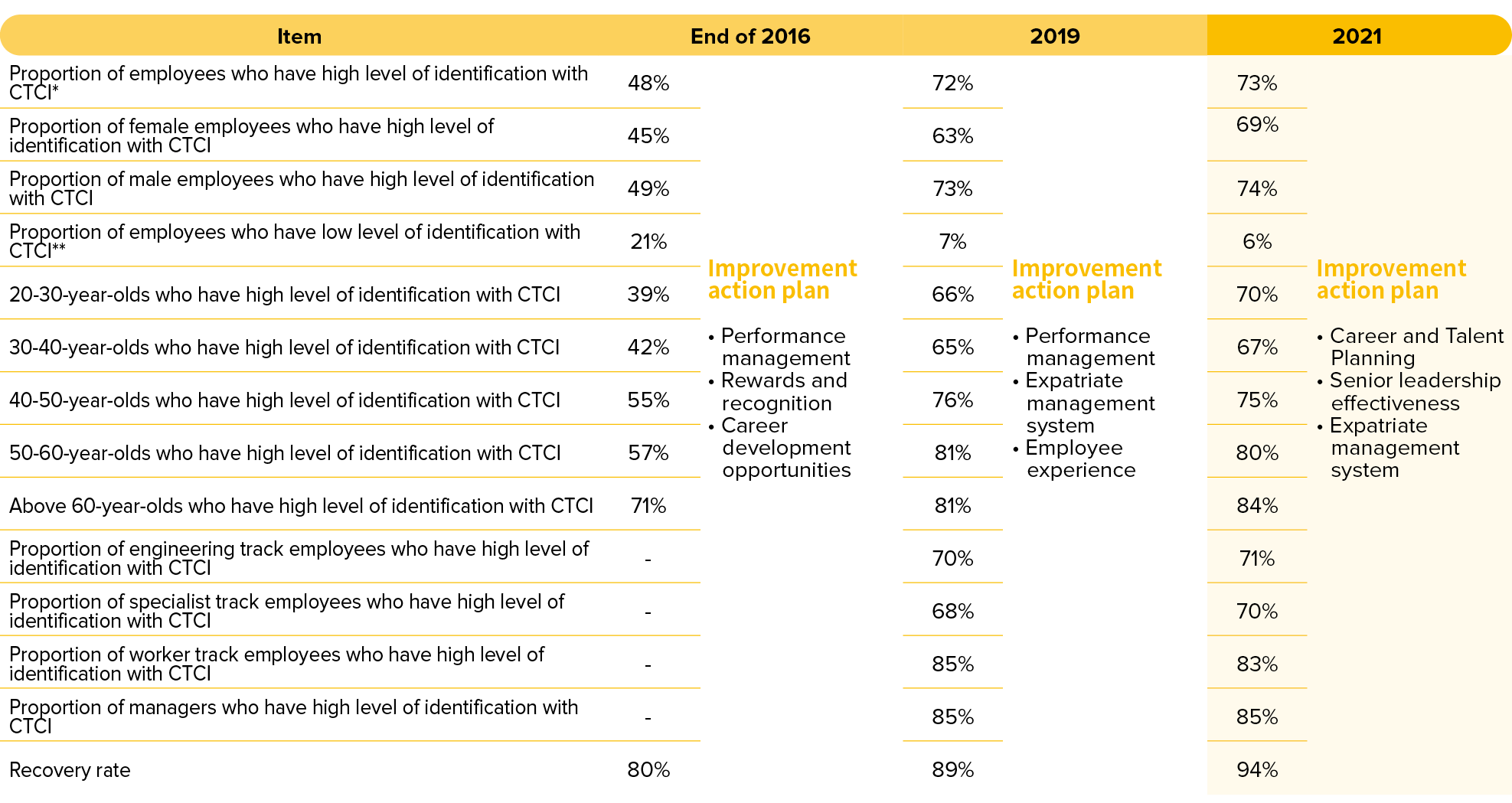


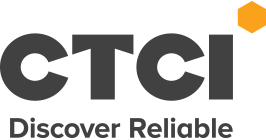 Copyright ©2022 CTCI All rights reserved.
Copyright ©2022 CTCI All rights reserved.